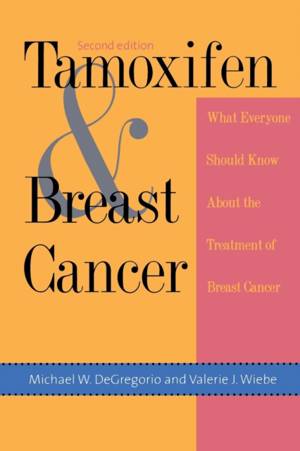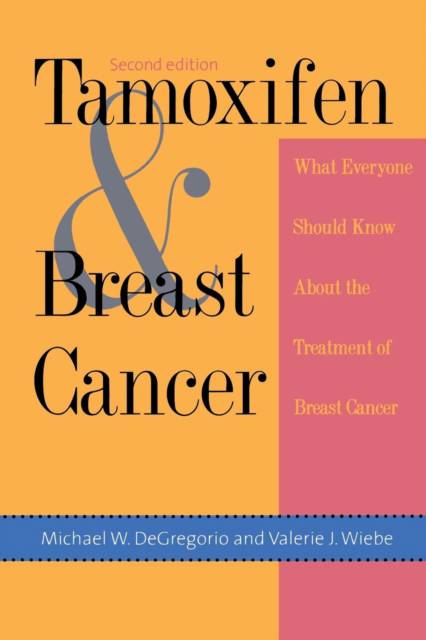
- Afhalen na 1 uur in een winkel met voorraad
- Gratis thuislevering in België vanaf € 30
- Ruim aanbod met 7 miljoen producten
- Afhalen na 1 uur in een winkel met voorraad
- Gratis thuislevering in België vanaf € 30
- Ruim aanbod met 7 miljoen producten
Zoeken
€ 35,95
+ 71 punten
Omschrijving
Tamoxifen is one of the most widely prescribed drugs used to prevent the recurrence of breast cancer. A nonsteroidal antiestrogen, it has been successful in treating postmenopausal women at nearly all stages of breast cancer. Despite its popularity, disturbing questions remain about the use of this drug. How effective is tamoxifen in treating patients who have hormone-insensitive breast tumors or who have not yet reached menopause? What are the potential risks in taking tamoxifen, and do they ever outweigh its benefits? Should tamoxifen be administered as a prophylactic drug for healthy premenopausal women who are at high risk of developing breast cancer? In this vitally important book, two leading scientific investigators present a balanced and accessible discussion of the diagnosis of breast cancer and the risks, benefits, and limitations of treatment alternatives, particularly tamoxifen. Michael W. DeGregorio and Valerie J. Wiebe discuss the history and evolution of tamoxifen as a treatment for breast cancer, explaining how it works, what its side effects are, and why tamoxifen treatment is unsuccessful for some women. They present the controversies surrounding the National Cancer Institute's study of tamoxifen as a preventive for breast cancer, describing the hopes of the proponents of the study and the fears of its detractors (potential risks to women in the study include thrombosis, uterine cancer, and even breast cancer itself). The book is an invaluable aid to women faced with decisions about treatment or prevention of breast cancer.
Specificaties
Betrokkenen
- Auteur(s):
- Uitgeverij:
Inhoud
- Aantal bladzijden:
- 128
- Taal:
- Engels
- Reeks:
Eigenschappen
- Productcode (EAN):
- 9780300079517
- Verschijningsdatum:
- 10/11/1999
- Uitvoering:
- Paperback
- Formaat:
- Trade paperback (VS)
- Afmetingen:
- 139 mm x 206 mm
- Gewicht:
- 163 g

Alleen bij Standaard Boekhandel
+ 71 punten op je klantenkaart van Standaard Boekhandel
Beoordelingen
We publiceren alleen reviews die voldoen aan de voorwaarden voor reviews. Bekijk onze voorwaarden voor reviews.











